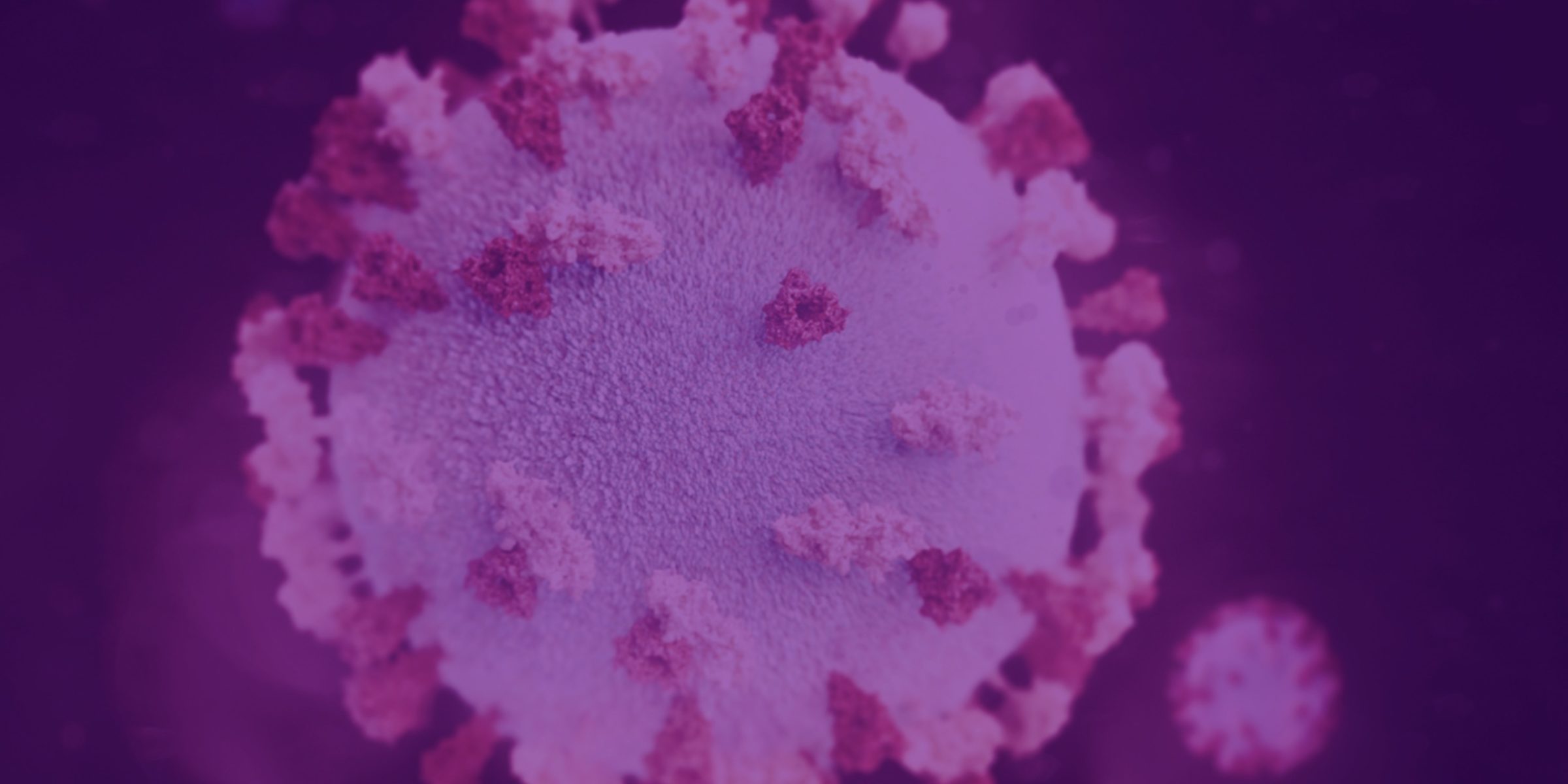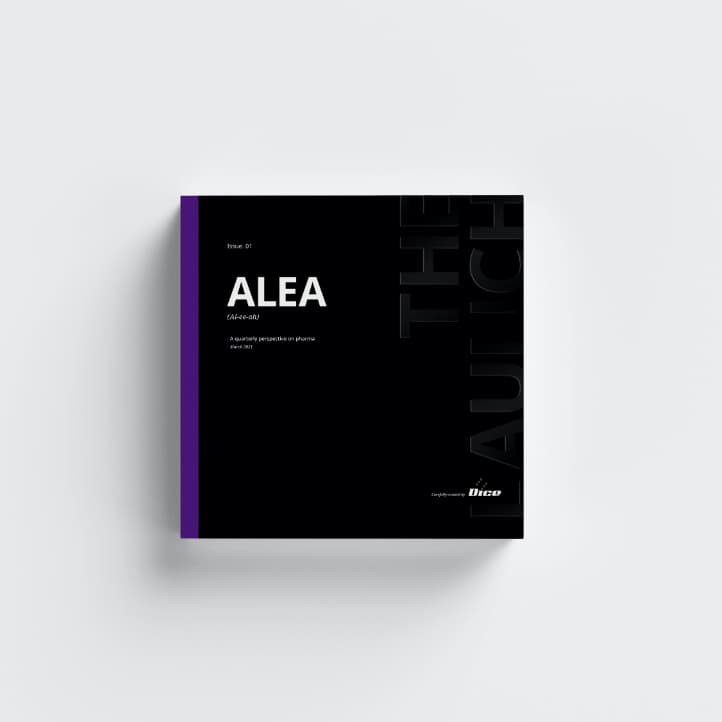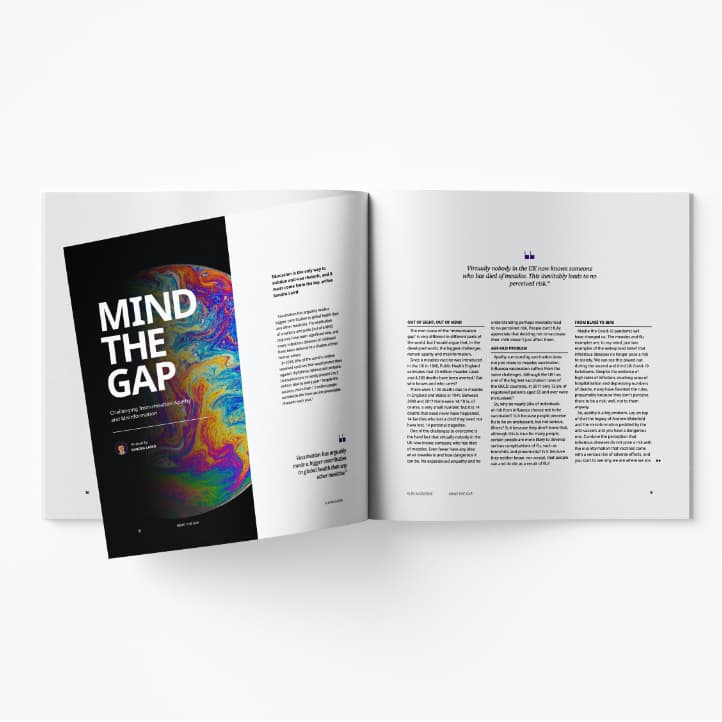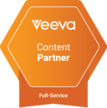
The Double-Edged Sword of Covid-19

If necessity is the mother of invention, then Covid-19 will have been the biggest driver of innovation in the last century.
If we look around our communities, we can see those businesses that have risen to the challenge… and those that have not. The pubs that immediately offered a takeaway service, those that transformed into outdoor cinemas or offered drive-through services, and those that simply shut up shop.
New businesses have sprung up in the toughest of times. Were cocktails delivered to your home even ‘a thing’ in January last year? Would musicians even have imagined a Zoom gig? I’m sure the answer is no; but yet here we are!
Dialling up the digital
In healthcare, the Covid-19 pandemic has driven the adoption of digital health in a way that seemed impossible months before. Suddenly every GP in the country instigated a triage process and embraced online consultations. Is this a temporary change? No, almost certainly not. Could it go further? Yes, without a doubt. Could community pharmacists play an even more active role in prescribing for simple ailments? Yes, absolutely.
You could argue that the pressure for change in primary care has been there for years, and you would be right. We’ve known for years that we don’t have enough GPs and that demand for services continues to grow, but yet change was slow and progress hard-won. Suddenly, every GP practice evolved at warp speed. A positive legacy of the pandemic, without a doubt!
For the pharmaceutical industry, it’s been a time of opportunity and challenge too. Early in the pandemic we ran into supply issues. The almost wholesale move to manufacturing generic medicines in India over the past 20 years suddenly didn’t make sense, and sourcing even the simplest of medicines became impossible. The reliance on China for API suddenly seemed like madness.
But solutions were found, regulators were flexible, emergency processes put in place and we moved on.
From valuable lessons to lessons in value
Perhaps we should stop and look back at this point, though. Maybe we need to think about whether a drive for cheaper and cheaper medicines is sustainable. If there hadn’t been a drive to the bottom on generic pricing then maybe companies wouldn’t need to have sourced products at increasingly lower prices. Maybe it’s time for the industry and the ABPI to lobby more effectively and negotiate guaranteed minimum prices for all essential medicines in return for a de-risked supply chain. Now, that would be progress.
Research has been the bigger winner surely? We have shown that it is possible to develop safe and effective medicines quickly. Funding has been available, proven mRNA vaccine platform technology developed over two decades was deployed rapidly to a new threat, and regulators adopted rolling reviews for the Covid-19 vaccines and fully engaged in evaluating promising drug candidates though the PIMs and EAMS programmes. All of these demonstrate what can be achieved when there is a pressing societal need. We ought not to revert to a ‘one size fits all’ approach to drug development and licensing. We could, and I would argue should, develop a new segmented approach to drug development based on the degree of unmet clinical need. Stakeholders in the rare disease arena have been championing such changes for years. Maybe it’s time to listen.
Together, pharmaceutical companies, health systems and regulators should agree on priorities for drug development based on need. These priority therapy areas could potentially benefit from expedited review, co-funding of development and preferential pricing. This would disincentivise the development of yet another ‘me too’ and truly incentivise innovation.
Our approach to evaluating cost-effectiveness and affordability would of course need to change in line with a new ‘unmet needs based’ development programme, but that may be a good thing. Whilst QALYs of course have their place, they have their limitations. There has long been a debate about their appropriateness in oncology and other severely life-limiting conditions.
Connecting and relating – interactions count
Covid-19 has taught us that the impact of disease on society is multifactorial and far-reaching. It impacts day-to-day living, our mental health and our ability to perform our jobs, socialise, access leisure and healthcare. In fact, it impacts every single part of our lives and our society at large. We need to be more holistic in how we assess and communicate the value of medicines, and maybe now, for the first time, our clinicians and local/ regional/national payers are open to considering this.
The approach to pharmaceutical marketing and sales, like all other areas of society, has seen a seismic shift in the last 12 months. Who would have thought that everything from advisory boards and congresses to 1:1 selling and service redesign could be conceived, developed and delivered online?
Companies continue to evolve their approach via Veeva CRM, Zoom, MS Teams and a plethora of other platforms. But, as in all walks of life, people remain people and people buy people. That’s why, for me, 1:1 selling will always be important. The question is, does it always need to be in person, or can it be done remotely? In five years, the model will, I think, be more mixed. Maybe we will need less people, perhaps there will be more contact ‘after hours’, but relationships and rapport will be no less important.
Our approach to marketing has and will continue to change. We are making every interaction count, we are making sure that
we sweat our assets. So, when we develop footage for a satellite symposium, we are making sure that we create additional assets from it. These might be podcasts, webcasts or talking heads videos that we embed in email fragments, or a million other things. We are making sure that our marketing activities are not a series of individual, standalone tactics, but an integrated programme of communication. Should it always have been like that? Yes, of course. Was it? For all sorts of reasons, no it wasn’t.
So yes, Covid-19 has been a personal, social, national and international challenge. By necessity, however, it has focused us to evolve. To work smarter not harder. If we hold on to this legacy, the pandemic will have brought benefits that may well help offset some of the hardships.






